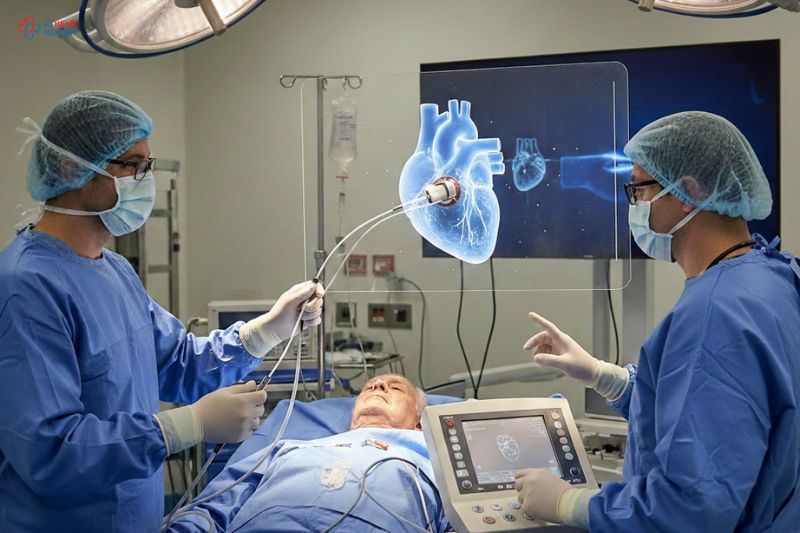In today’s fast-paced world, where every second counts, staying on top of your heart health has never been more accessible, thanks to smart wearables and innovative apps. These devices are more than just accessories; they are your personal heart health monitors, providing valuable insights and real-time data that can make a significant difference in maintaining a healthy cardiovascular system.
Continuous Heart Monitoring
One of the most remarkable features of smart wearables, such as smartwatches and fitness trackers, is their ability to continuously monitor your heart rate. These devices use advanced sensors to track your pulse throughout the day, offering a real-time look at how your heart is performing. This feature is valuable not only during exercise but also in daily life, as it can detect subtle changes in your heart rate, which may signal underlying issues.
For individuals concerned about heart health, these continuous heart rate monitors offer an ongoing assessment of their cardiovascular performance. You can track your heart rate trends, helping you understand how your heart responds to various activities, stress, and even rest.
Activity and Fitness Tracking
Maintaining an active lifestyle is a cornerstone of heart health. Regular exercise helps strengthen your heart and improve circulation, reducing the risk of cardiovascular diseases. Smart wearables come equipped with fitness trackers that monitor your daily activity. They count steps, measure distance, and even calculate the calories you’ve burned.
These fitness trackers are an excellent motivational tool for those who are keen to improve their heart health. By setting and achieving fitness goals, you ensure you’re getting the exercise your heart needs. When it comes to physical activity, every step counts, and these devices provide you with a clear picture of your daily effort.
Heart Health Insights
In addition to tracking heart rate and physical activity, many smart wearables also come with dedicated apps that offer insights into your heart health. These apps are designed to detect signs of stress, irregular heartbeats, and potential heart issues. They can provide valuable information that empowers you to make informed decisions about your health.
For instance, if your smart wearable consistently detects an elevated heart rate at rest or during light activities, it may suggest that you consult a healthcare professional. These early warnings could be crucial for preventing serious heart problems. In some cases, wearables have even detected atrial fibrillation (AFib), an irregular heart rhythm that increases the risk of stroke.
Moreover, some advanced wearables allow you to record your own ECG (electrocardiogram) from your wrist. These recordings can be shared with your cardiologist for a more accurate diagnosis if necessary.
The Future of Heart Health Monitoring
Smart wearables are more than just accessories; they’re health partners. As technology continues to advance, we can expect even more sophisticated features in the future. Some wearables are already capable of measuring blood oxygen levels, tracking sleep patterns, and providing detailed reports on your heart health.
Incorporating smart wearables into your lifestyle is a smart move for your heart. They are your reliable companions in maintaining good heart health, offering a watchful eye even when you’re not thinking about it. Remember, the data they provide is not a replacement for professional medical advice, but it’s a valuable tool for early detection, prevention, and improved overall heart health. Embrace the future of heart care and make your smart wearable an integral part of your health journey.



